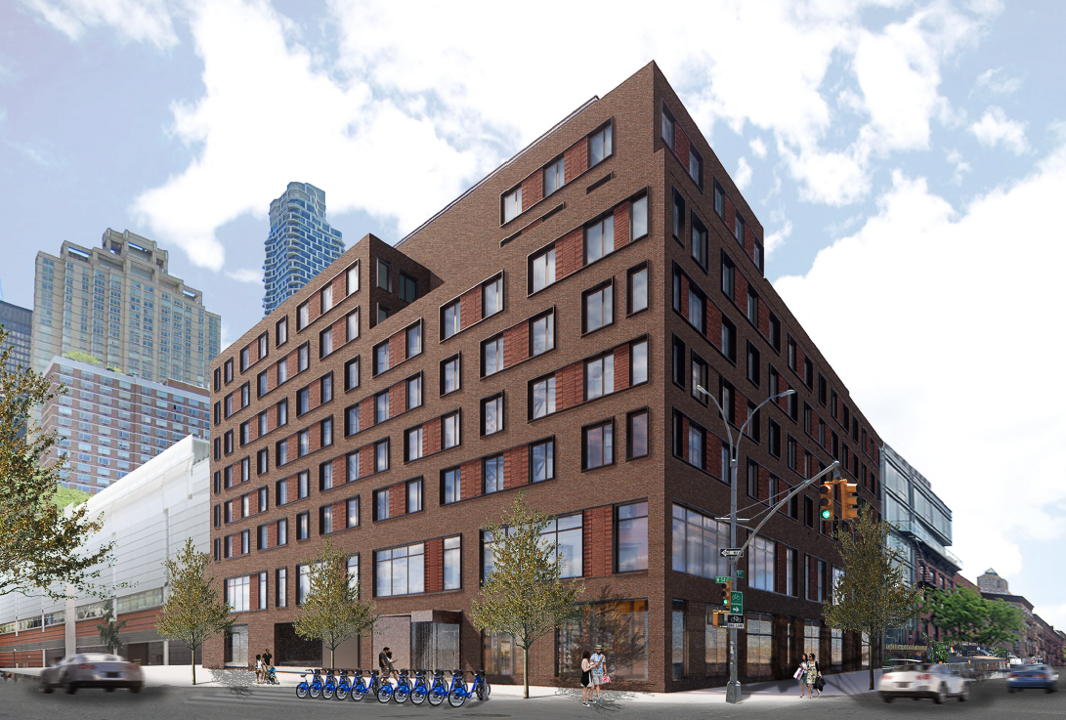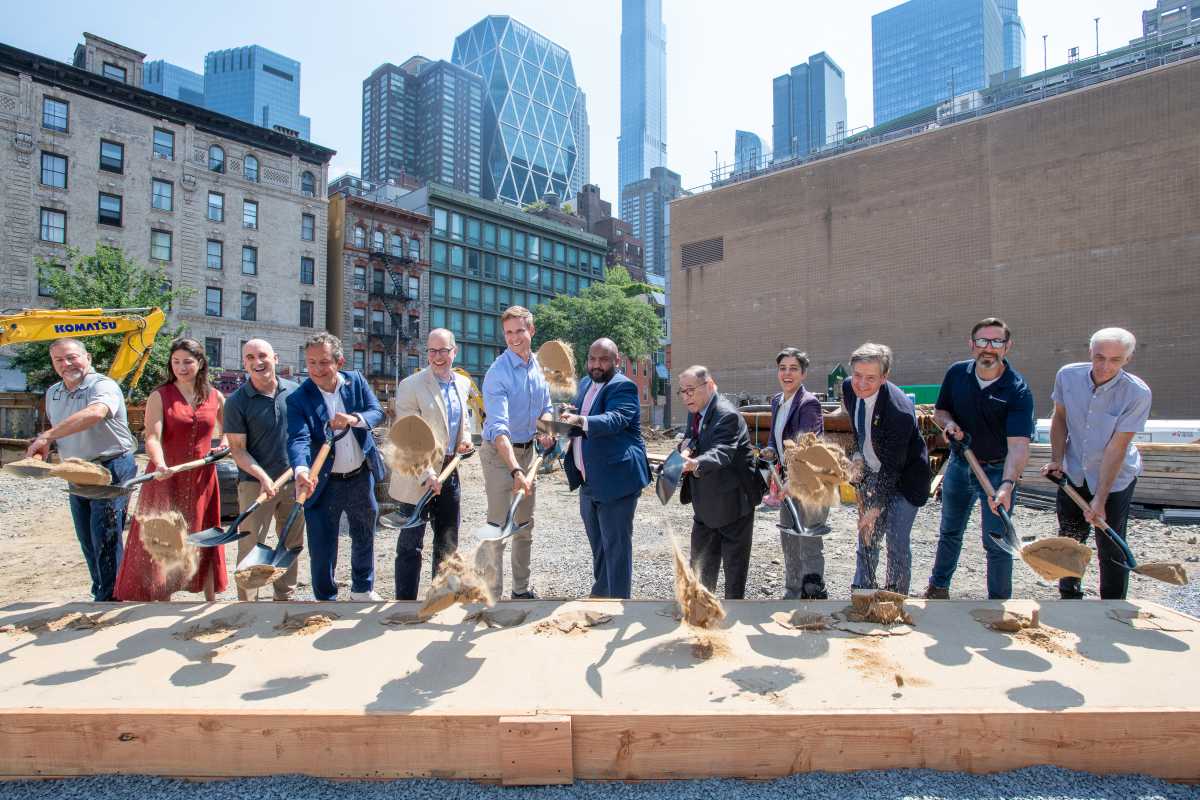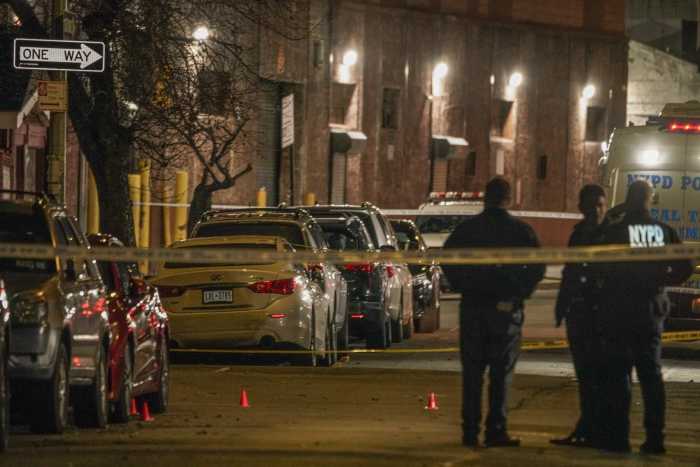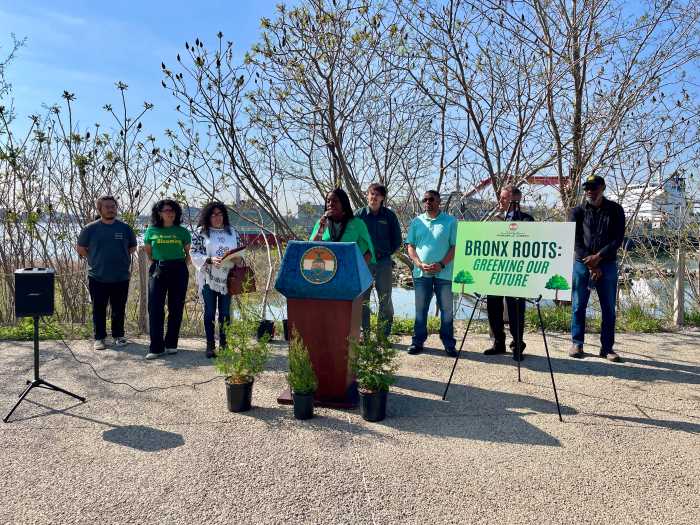Affordable housing will stand at the heart of The Lirio, a new mixed-use development that will soon rise in Hell’s Kitchen.
Elected officials joined Housing Works and Hudson Companies on July 17 to celebrate the groundbreaking for The Lirio, at 364 West 54th St. Named after the Liriodendron tree, the oldest living organism in the city, The Lirio is a collaboration between Housing Works and Hudson Companies and supported by the New York City Department of Housing and Preservation (HPD) and the MTA.
In April, Hudson Companies and Housing Works closed on $119 million in financing, made possible with the support of Webster Bank, Merchants Capital, and Red Stone Equity Partners, alongside city funding, with contributions from Council Member Erik Bottcher (D-Manhattan) and Manhattan Borough President Mark Levine. Construction is expected to be completed by 2026.
The development, designed by CetraRuddy, will feature retail space along 9th Avenue, a 30,000-square-foot office for the MTA, and, most importantly, 100% affordable apartments. Forty-four of the 112 much-needed permanently affordable housing units are designated for families earning between 30% and 120% of the area median income.
Sixty-seven units are reserved for formerly homeless individuals, including 59 units for formerly homeless long-term survivors of HIV/AIDS.
According to the NYC Department of Health and Mental Hygiene, Hell’s Kitchen has the highest concentration of people living with HIV/AIDS and was the fifth-highest neighborhood for new HIV infections in New York City in 2019 and the second-highest neighborhood for new HIV infections in Manhattan in the same year.

Housing Works will provide on-site case management and specialty programming. Residents of The Lirio will also have access to HIV-specific primary and behavioral care at Housing Work’s Federally Qualified Health Center on West 48th Street.
Further, the new construction targets Passive House standards, the world’s leading standard in energy-efficient construction, and LEED Gold certification, which means that a building has excelled in its sustainable design and operation.
Hudson Companies President David Kramer called the groundbreaking a “pivotal moment” addressing various community needs.
“With construction formally underway, we look forward to welcoming new residents soon and building on the rich history of the surrounding neighborhood. We are extremely grateful to our partners at the MTA, HPD, Webster Bank, Merchants Capital, Red Stone Equity Partners, Council Member Erik Bottcher, and Borough President Mark Levine for making today a reality,” Kramer said.
Andrew Coamey, senior vice president of Housing, Housing Works and executive director of Bailey House, said Housing Works was excited to be part of developing a brand-new building in the heart of New York City, offering rent-burdened families and individuals a safe, beautiful, affordable and amenity-filled home.
“We hope The Lirio will serve as a model of what can be achieved when housing developers, City Government, and Agencies, along with communities like Hell’s Kitchen, work together to provide solutions to those challenges,” Coamey said.
Council Member Erik Bottcher was “thrilled” to break ground on The Lirio and bring 112 affordable housing units to Hell’s Kitchen.
“Not only will this transformational project address our housing needs for the community, but it will provide neighborhood retail and services for some of the most vulnerable New Yorkers,” Bottcher said.
Manhattan Borough President Mark Levine pointed out that the groundbreaking of The Lirio couldn’t have come at a better time as the City tries to lower rents and build more units across the City to overcome the housing crisis.
“Today, we’re celebrating the start of construction for 112 units of desperately needed permanently affordable housing, neighborhood retail, and MTA office space. I want to thank Hudson Companies, Housing Works, Community Board 4, and the MTA for all their tireless efforts to make this building a reality,” Levine said.
Read more: East Village residents protest migrant shelter crisis




































